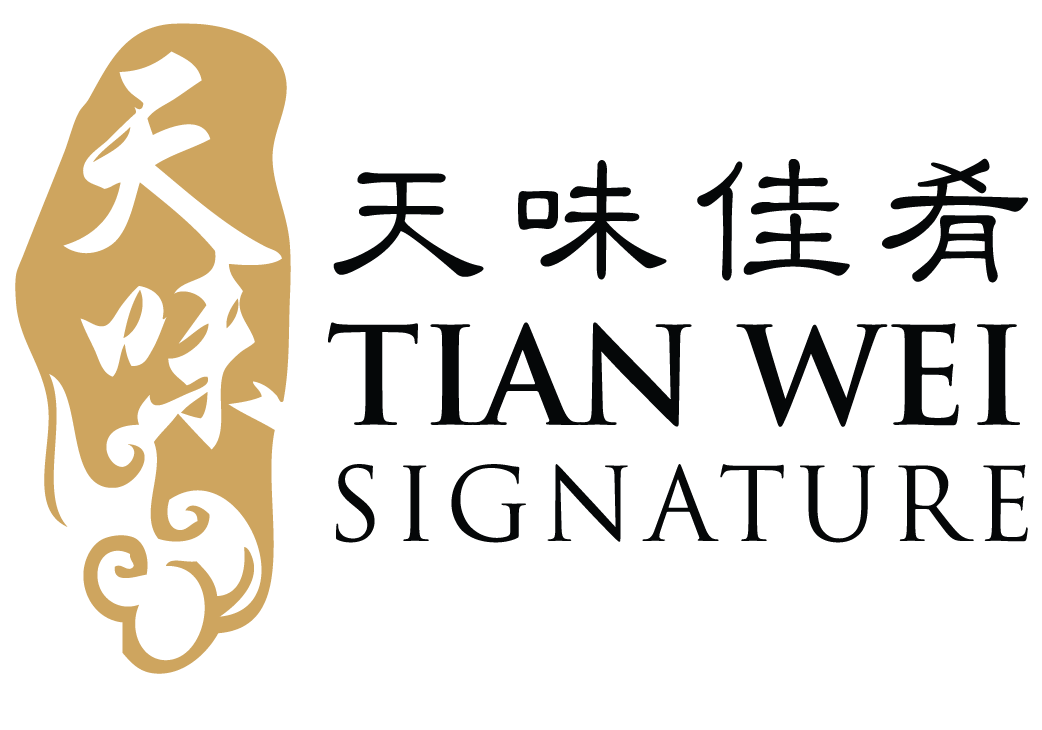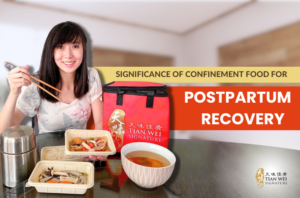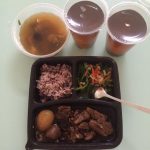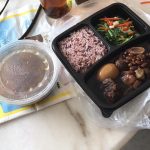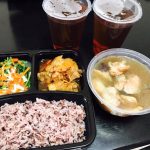81 Tagore Lane, TAG A, #01-11 Singapore 787502 ♦ Reservation : +65 6727 5599
What Should I Eat to Prepare for Labour and Childbirth?
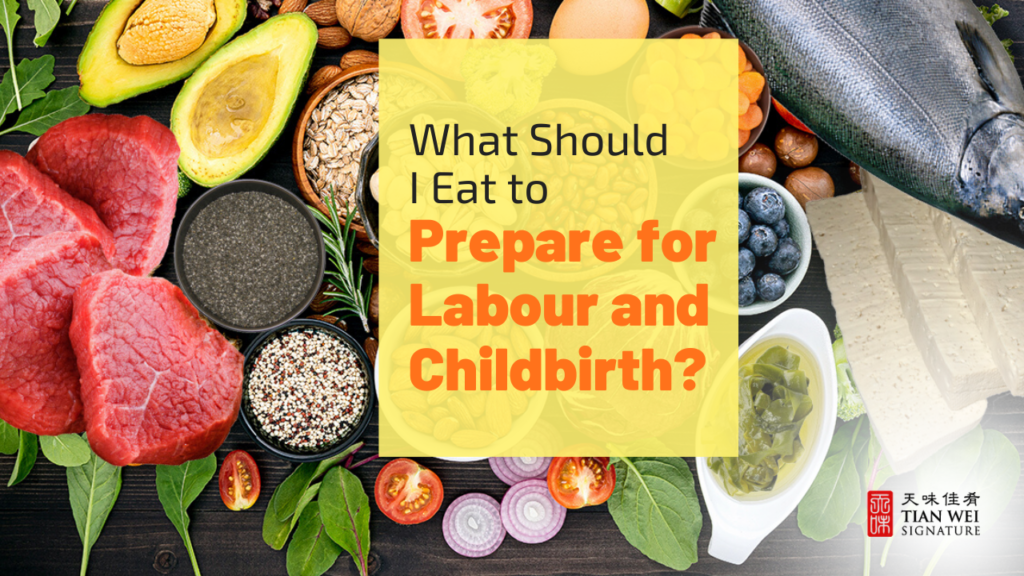
Is your EDD approaching? Don’t panic! You’ve got this, and everything is under control, especially now that you’ve arrived at this article. In this blog, we’ll talk about one of the most crucial aspects of lifestyle at any stage – whether you’re pregnant or have just given birth – which is your diet!
When talking about diet, preparing for childbirth is like preparing for a race. It is a challenge for both your stamina and strength. You may have to exert a lot of energy throughout the labour which could last for long hours. Therefore, you will need to supply yourself with enough energy and proper nutrients before that time comes.
Of course, this does not mean you should leave everything to the very last minute and gobble down all nutrient-packed foods you could find only days before getting into labour. If possible, maintain a good diet from the moment you found out you were pregnant (bonus point if you could do it continuously afterwards)!
When you are preparing yourself, you are actually at the same time preparing for your baby before they come into this world as well. Have you heard of the phrase “nourish for two”? There is definite truth to it, so remember this whenever you are planning your prenatal diet. The key element for preparing yourself for pregnancy and for childbirth is a balanced and nutritious diet.
Protein
During pregnancy, you will need to consume extra protein for the growth of your baby in the tummy. Protein is used to create skin, muscle and hair. Before childbirth, protein is essential to strengthen muscles. If you are pregnant, we would advise you to eat dairy and lean meat which has high-quality protein. If necessary, you can choose supplements with natural and unsweetened protein powder.
Iron
Many women have low iron stores due to menstruation every month which might lead to anaemia. As you are pregnant, your blood volume increases by 30% to 50%, and you must top up your iron levels.
Right before childbirth, your baby will store up the iron which will be needed for the first few months of life. Some foods you can consume before childbirth are dark and leafy vegetables, dried fruits, whole grains, nuts and seeds. Regularly consuming suitable confinement fruits after birth is also important to improve your gut health and prevent constipation, which is the last thing you would want to deal with when recovering from birth.
Vitamin D
Everyone needs vitamin D which aids in absorbing calcium. It is especially important for pregnant mothers as well as breastfeeding mothers as it helps the baby in developing bones and teeth. Without enough vitamin D, your baby might have soft bones. Vitamin D can be found in natural sunlight and foods such as eggs and salmon. Before childbirth, pregnant mothers need to consume more vitamin D so the baby can obtain enough vitamin D.
Calcium
Calcium is necessary for the bone development of a baby. If you don’t consume enough calcium, your baby may draw the calcium from your bone. This can lead to porous bones later in the life of a mother.
Some natural foods you can consider to increase calcium intake are fortified dairy or fortified soy. Just 2 cups per day will help you achieve 1000mg of calcium per day which is the recommended intake for mothers during pregnancy and breastfeeding. Some studies have even found an association between low calcium intake and an increased risk of pre-eclampsia during pregnancy.
Omega-3
During pregnancy, you will need to adapt to your body changes and role changes. These changes might cause anxiety and stress as each of them may feel extremely unfamiliar and new to you. With enough consumption of Omega-3 DHA, your risk of depression during pregnancy and postpartum can be reduced.
Adequate intake of Omega 3-DHA throughout your pregnancy can help to reduce the risk of premature birth, according to research. Omega-3 can be found in fatty fish like salmon and mackerel, walnut, chia seeds and seaweed.
Tasty Meals To Prepare Before Labour & Childbirth
We know you may have been advised by experts and everyone around you to ‘eat right’ throughout pregnancy, but as your due date is nearing, you might want to take another extra step to look into what to eat.
1. Sweet Potatoes or Yams
Sweet potatoes and yams are the sources of potassium and carbohydrate which are the nutrients that are needed for muscle contraction and relaxation. They are also something really simple that you can have right before labour as it gives you a supply of energy.
2. Plain Water
Maintaining hydration is important at the end of your pregnancy. This is due to the fact that you and your baby need H20 to support daily needs while at the same time reducing your risk of low amniotic fluid level. Sipping on plain water and coconut drinks (if not diabetic) during labour are helpful as a lot of fluid is lost after childbirth. In severe cases, mothers can feel constipated if they are not adequately hydrated. If drinking throughout is too boring, having snacks of high water content fruits nearby is useful too (melon, watermelon, honeydew, papaya, apple, etc.). They can be light tasting and refreshing while giving all the electrolytes, potassium, sodium and energy for labour.
3. Nuts & Seeds
Introducing you to the source of multi nutrients – nuts and seeds. There are different sorts of nuts and seeds you can add to your meal, such as sesame, sunflower seeds and almond. Sesame seeds have a good amount of calcium, zinc and copper. Other than these, almonds are also rich in Vitamin E which is known to be good for skin health. Walnuts and cashews can be a great option too as they are a great source of Omega 3 which is known to be anti-inflammatory. Nuts and seeds are in general a great choice of snack to have before labour as they are not only easy to pack and go, they are a great source of energy for mothers.
4. Yoghurts
Another great feed would be the yoghurts! It contains sugar and carbohydrates that can boost your energy when preparing for labour. So, you may keep your refrigerator stocked with yoghurt when the EDD becomes closer. It would be a good fit to serve yoghurts as your daily dessert too.
5. Fruits
Likewise, fruits are a good source of quick energy as they contain natural sugar. Out of all sorts of fruits, bananas are known as the best pre-labour fruits. It is probably because they are a rich source of potassium and an energy boost which helps your muscles to function optimally. You can also make them into smoothies if you want!
“So, why are mothers advised not to eat during labour?”
While this question may have been thrown around here and there, the reality is not black and white. Perhaps you have also heard some of the hospitals’ policies revolving around ‘no food and no drink’ during labour which can lead you to such thoughts that moms in labour cannot consume much.
Nevertheless, it is not that mums in labour are advised not to consume anything at all, but rather they are advised to watch what they choose to have. In fact, if you had been in labour before or know someone who has, you were possibly more likely to hear “try not to have anything too heavy when you reach the later stages of the labour” than “you shouldn’t have anything at all” in labour. Exhibit A: the ice cubes. Moms are normally given ice cubes to sate their thirst during labour which, in a way, implies that they can still have something. But still, why only ice cubes and not ‘real’ foods?
Back then, doctors and midwives used to require labouring mothers to fast while in labour due to fear of aspiration, which happens when any food or water is inhaled into the lungs. This is primarily the reason why some mothers are asked to fast when going into labour. Another possible complication also is lengthened labour, but there is no evidence for that.
Different opinions over the years
The good news is many experts including medical practitioners have constantly reevaluated the idea of women in labour not being able to eat. Over the years, as women have expressed their desire to make labour more of a natural and comfortable process (for themselves), the healthcare community has been looking at whether the risks still apply today.
In 2015, the American Society of Anesthesiologists mentioned that mothers in labour should be allowed to eat and drink whenever possible. Nowadays, it is very common for mothers to have different experiences during labour from each other. One mother can say she had multiple snacks throughout her labour, while another may share that she was ‘strongly advised’ not to eat or drink anything but ice cubes.
Who may get to eat more during labour?
Healthy expectant mothers with low-risk pregnancies normally get the green light from their doctor. If your pregnancy has been going well and you are also fairly healthy, you may be allowed to snack on things. For some mothers, labour can be a long process in which you could get really hungry and be out of energy when you need to push during delivery so it would be good to have something to replace those calories.
With that said, not everyone who is allowed to eat would want to eat. In fact, there are many moms who find themselves unable to take anything while in labour. They either have no appetite or are not in a comfortable condition to do so. Surely, when nausea and vomiting are close companies, food may feel like the last thing you need. Make sure to have them slowly and bit by bit rather than taking a huge mouthful at a time.
Moms go through pregnancies and labour differently, so rather than only depending on advice from experienced mothers – whose advice may differ from one another – you should talk to your doctor or physician first.
While the better alternative would be to eat way before labour, sometimes labour comes without much ‘warning’. So best is just be prepared with a few snacks in your baby bag before you head to the hospital. Be prepared and be open to having some snacks or not during the time of labour.
If you are wondering after pregnancy what to eat, we are here to help relieve your confinement stress! In case you want to know what a proper, nutritionist-approved confinement diet looks like, simply browse through our highly-favoured Singapore confinement food menu. Tian Wei Signature offers the best confinement food catering for new mothers to ease your recovery journey. And with that, we wish you all the best in your maternity journey!
